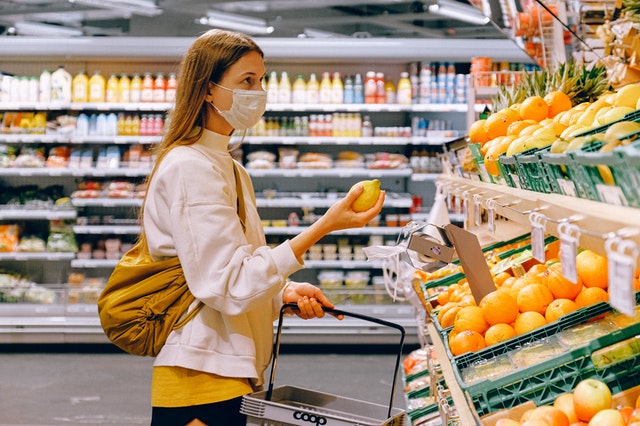The COVID-19 pandemic has influenced much of the world’s functioning systems in the world. Non-essential services such as retail stores and shopping centers in Australia have temporarily shut their doors and follow the lockdown protocols to stunt the spread of the contagious virus.
Nevertheless, the introduction of the vaccines is giving way to the re-opening of the retail stores. Regardless of the lockdown lift, the long lay-off from the physical retail experience has changed the shopping habits for majority of the people.
E-commerce is a must
E commerce has shown steady acceleration during the lockdown period in Australia. Many first-time online shoppers have realized the convenience of ordering items from the comfort of their homes. Thus, this has caused a major shift in shopping behaviour.
A lot of change in consumer behaviour is expected. Some people may not feel the urge to shop as often and spend on unnecessary items because of mass unemployment risks. While on the other hand, small e-commerce businesses have experienced exponential growth.
Much of reasons that led to their success can result from online panic buying because of the uncertainty. Regardless of the reason, E-commerce business models continue to strive towards success, and any retail store without an E-commerce platform will struggle to survive the post pandemic landscape.
Fortunately, adopting smart phone technology as an E-commerce tool is a viable and user-friendly option for retailers.
Online branding should be every business’s focus
Since consumer behaviour is likely to change, every business in the Australian retail space should develop their online profile. The online consumer market is increasing in number as time progresses. This is because the consumers find the post-pandemic shopping experience very inconvenient.
No one wants to bother wearing a mask, wait in line, and follow social distancing protocols just to shop for a few items. Hence, most people will now look to online portals. Since there are many target audiences browsing online for items and services, a business must shift their focus to online branding if they want to succeed.
Online reviews have become more and more prevelant, from Google reviews to having your business recommended by local influencers, it can make or break your business’ sales. It’s important for every business to have a strategy in place so their exsisting customers share their experiance either on their own social media or review the business, so you can build up your online presence.
Create a unique experience in physical stores
Due to the pandemic, there is a rising concern for crowded spaces. This means that retail stores have to start working on their store design to limit the number of people. Along with setting different protocols to create a safe environment, retailers will also have to change the way they navigate.
Despite all the changes in the physical settings and shopping experience, many people still deem the physical shopping experience as more superior. Thus, for a certain group of people, retail shops have to create a unique shopping experience within the confines of the social distancing rules.
Any business that manages to innovate and create ways around safety protocols that does not devoid people from the conventional shopping experience is likely to attract consumers. The malls will not go away from fashion, and they always remain as the epicentres of retail activity.
Smaller retailers will struggle with marketing
As lockdowns ease, things will eventually pick up pace, and consumers will gradually increase outdoor retail activity. The shops that will be the safest, and have technologically advanced shopping and service experience will outlast and win the majority of the consumers.
Giant retailers will capitalise on this opportunity and try their best to provide a better pandemic friendly environment than smaller business owners try. Therefore, the smaller retailer is destined to struggle when it comes to marketing, and without an e-commerce alternative, they will probably run out of business.
Hiring talent to help with marketing can also be challenging for smaller businessses, as they are ususally unable to hire a full time marketer inhouse, they are left with hiring a marketing agency for help. The issue here is that marketing agencies don’t always put their top talent on your account, unless you’re high a high paying client, and after they onboard you, you end up working with their junior staff, rather than their more experianced managers, as they are overlooking larger accounts.
The only way to address this in the early days is to learn the basics of marketing yourself, and outsource individual tasks, but manage the overall operations yourself.
Online customer acquisition costs will rise
The customer acquisition cost refers to the amount of money a business spends marketing their brand to acquire new customers. To get the customer cost acquisition, you can divide the amount of money you spent to get customers, and divide that number with the number of customers you acquired.
This will tell the approximate number of the money you spent on each customer. As the demand for E-commerce rises, the online customer acquisition will also increase, and new businesses will have to expand their online marketing budget.
As small retailers being to compete for the same audience as larger retailers, they will find their ad bidding prices will begin to rise, and at the end of the day, smaller retailers operating a tighter margins will not be able to compete for a higher cost per customer aquisition.
To conclude
The good news for small retailers is that customers are aware of the crises, and they might give small businesses the benefit of the doubt. A community striving to keep small retails in business is a sign of hope in the face of the pandemic. Australian retailers can use this opportunity to learn, innovate and advance.


